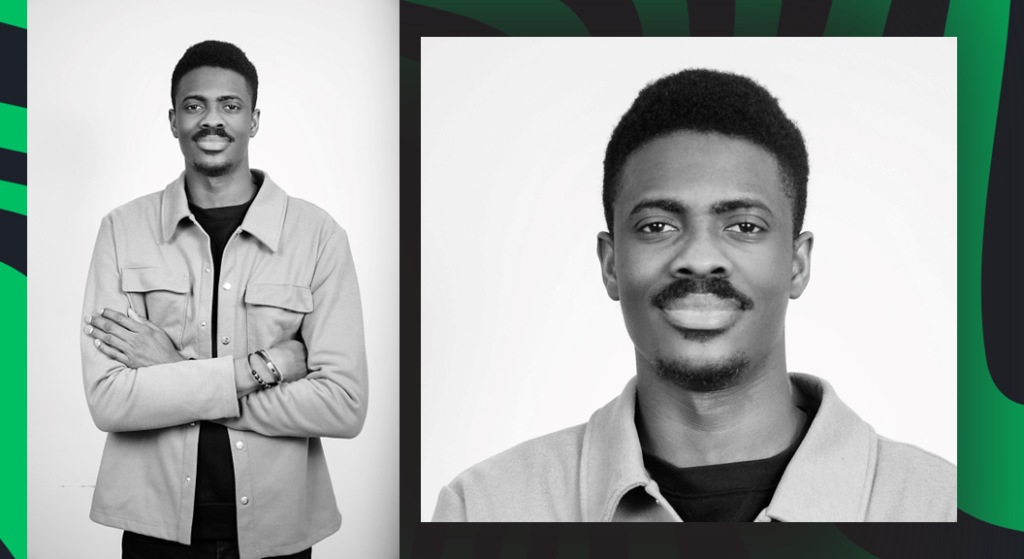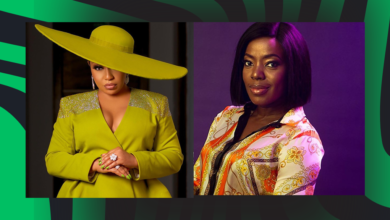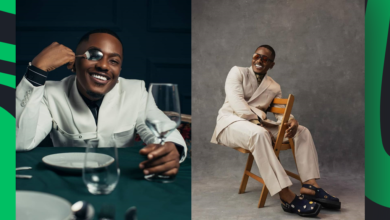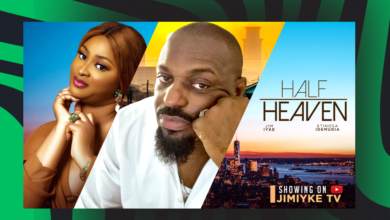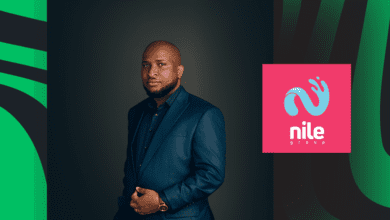The Story ⚡
Film editing is both a science and an art. It involves technical proficiency with editing software, an understanding of storytelling principles, and a creative vision to transform raw footage into a coherent and compelling narrative.
In our latest interview, Nigerian film editor and producer Martini Akande takes us through the craft and business of the cutting room with the nuance of the Nigerian film and TV industry
This interview reveals the industry journey of Martini Akande, his thoughts on what makes a film well-loved by audiences, and the status & standards in the Nigerian post-production scene.
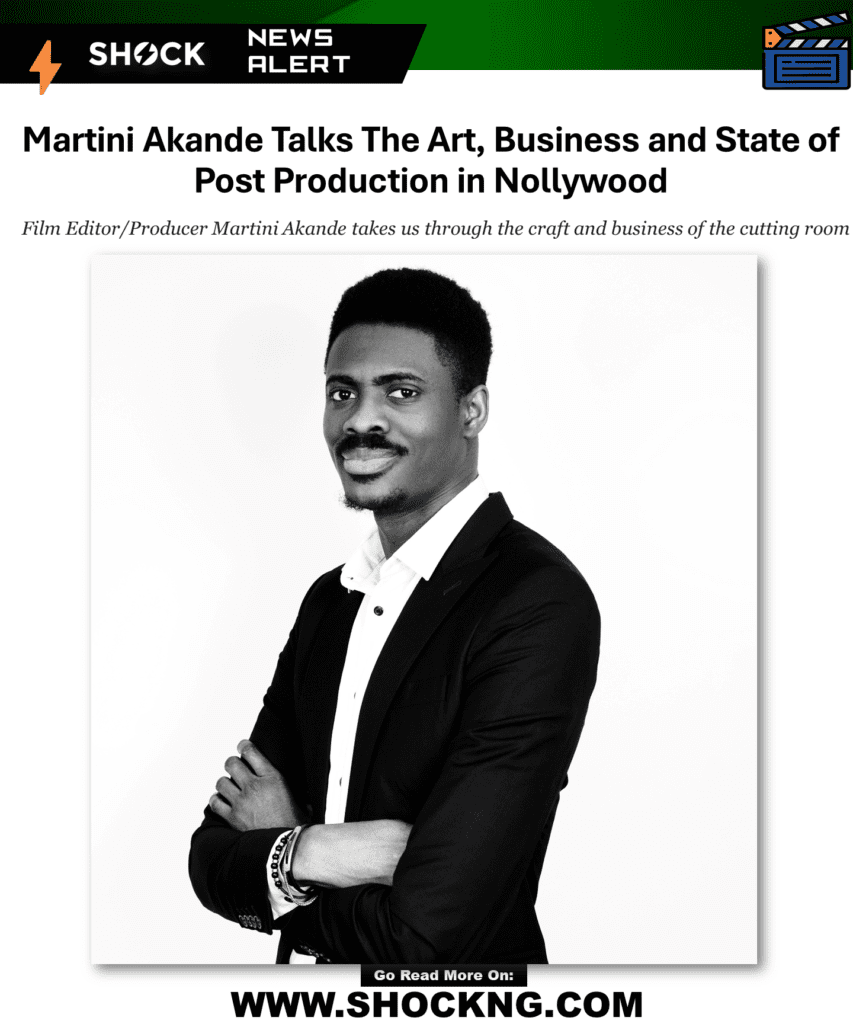
The value proposition of your job. How do you define it?
Film Editing is a lot like writing, in the sense that it is in the process of bringing scenes together that the film finally comes alive. It is basically working with the footage you have, to create a coherent scene. ‘Taking out the bad part” is not a line I like to use anymore, but it is still essential to what editing is.
The film editor puts the performance together. They manipulate and lead the audience through the story, directing their attention at every point in time. So how the audience reacts – sadness, happiness – is all achieved by a film editor. For example, why do I cut to this close-up of the keys? It is because I want you to know that this key is going to be used to open the door or the key will be thrown into the river.
Martini likens the editor to the first audience of the film. He also sees a lot of comparisons between film editing and writing. So he encourages editors to read screenwriting books.
Journey To Becoming A Film Editor
I have two friends who are now well-established directors and writers. Together, we decided that we would start making our own short films. Meanwhile, I was already doing event coverage because filmmaking and acting weren’t making me any money. So the moneymaking came from covering events. (Yes, Martini had a short career in acting)
One of my favourite events to cover then was weddings, and cutting wedding trailers. It was so good then that when I cut the wedding trailers, the couples would take the wedding trailers, post it everywhere and forget to ask for their full wedding video. With that, I fell in love with cutting wedding trailers.
When we made our short films, we usually had editing problems. It was either there was no one to edit them, or the editing was usually done badly. At a point, we decided that one of us needed to start doing the editing. I was already doing some editing with the event coverage so that job fell to me. That was how I started editing short films. We put them out on YouTube and did some promotions, and people saw and liked it. “Who edited it? Martini edited it”. I started getting offers to play with & edit other short films. I played around with those films to get something to work with and I got good feedback.
My first feature film was also something I did with my friends. We decided to take a stab at feature film so we made a feature film titled “In Ibadan”. We put it out there, and it became part of my portfolio and from then on, I could tell people that I had edited a feature film before.
After that, clients now had more confidence in me and gave me their feature films to edit. I started doing the wedding videos around 2015, and we shot and edited ‘In Ibadan’ in 2019.
Approach To Working on a Project
First off, let’s assume I am brought in at the script level. So, I get sent the script, I read it, and I give my contributions. I have conversations with the director on their vision for the film, the best thing a director can give the editor is a clear vision for the film.
At the script level, we already have an idea of how long the film would be. In most cases, we try to say one page is one minute so I already have an idea of the length of the film. I am already doing my own study, maybe watching films that are like that, looking for references here and there. We start discussing the deliverables, what platform the film is going to, aspect ratio etc. I start having these conversations with the producer.
If I am going to work with an assistant, I am already prepping my assistant on how digitizing and data management will be handled.
I like to edit scene by scene because I believe a scene must have a beginning, middle and end. A film is a bunch of scenes so every scene must be addressed individually, it must be good as a stand-alone. I can almost say a scene should be as good as a short film. That is how I like to approach my scenes.
When I am done addressing every scene, then it is brought together on a master timeline and worked on for pace and rhythm. Then there is the cutting for the story, trying to see how one scene leads to another. A lot of times, progression from one scene to the next leaves the audience confused because they can’t tell if it is six months, ten years later, or even the next day.
There is a way you dissolve from one scene to the other to show the passage of time. Change from one scene to another needs to feel as natural as possible.
So after all these have been done, we get the first cut and send that out to the producers. The time between the first editor cut and when we finally have the picture locked most times depends on the producers and the directors. It depends on how much nitpicking they want to do, and how much they change their minds.
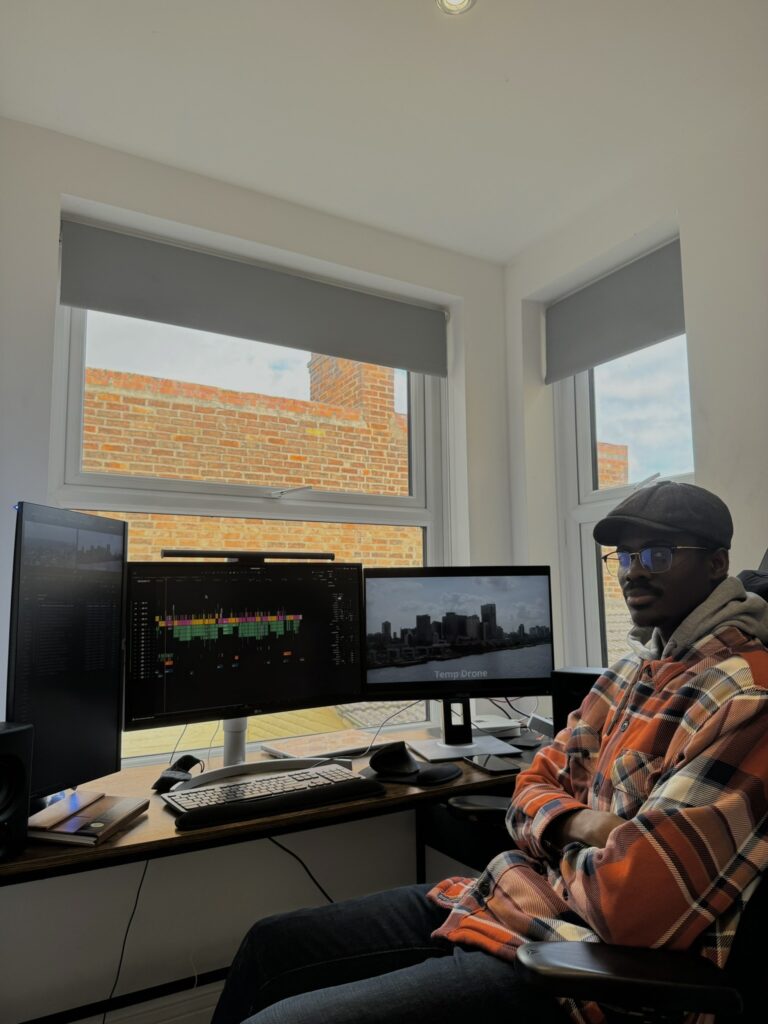
Cutting A Badass Trailer For A Nigerian Film
What matters to me when cutting a trailer is what the film is about. A trailer is an invitation to the audience to watch a film. It’s meant to tease the audience to come and watch a film.
I don’t think it matters if it is a Nigerian Audience but I know that the principles are universal. What will make a Brazilian audience watch a film after watching the trailer is probably what will make a Nigerian audience watch the same film. I get what you mean by “Nigerian audience” and I will tell you a story later.
What really matters is what the film is about, you want to tease the audience to come watch the film, so if the trailer is not impressive, the audience already has doubts about the film.
I think a lot of people don’t want to reveal too much in their trailers so they end up revealing nothing. You need to give the audience something to hold onto. Give them an idea of the story. Give them a little bit of the conflict. There is no need to worry, Marvel trailers are three minutes long. You need to use the dialogue that tells the story, nothing too detailed but enough to raise interest.
It is like buying garri at the market, you will first taste the garri. Just imagine the trader tells you to only smell the garri; no; you have to taste it. That is when you say oh, “Garri yi kan oo (This garri is sour)””, that is then when you buy.
A trailer needs to have a direction, there are a lot of convoluted trailers out there.
For instance, for Brotherhood, Jade and I wrote a script for the trailer. A trailer should be scripted or outlined, it should have direction, and it should look good on paper before you start putting it together on your machine.
Now my story on cutting a trailer for a Nigerian audience: I edited a trailer for a film, the film is out now. It was a co-produced title and when I cut the trailer, one of the co-producers was in love with the trailer, and was already preparing marketing and all that, only for the other co-producer who is also a lead actor to come back and say he liked the trailer, but it wouldn’t work for his own audience; he said the trailer was too serious for his own audience. Of course, I got paid my full balance. So he said, what he would do is use part of the trailer I cut and use my sound bed.
When I do my trailers I first build a sound bed, I mean a dialogue, sound effects and music bed before I start cutting my trailer – he used the sound bed for all the promos, all the trailers, everything. When I was feeling some kind of way, the co-producer told me they liked what I did but this person knows his audience, the kind of audience he wants to attract, the kind of audience that will pay for his own film, and what they like.
So they were like, this trailer you have done is looking like an Oscar trailer and in a way, they were right because when I saw the trailer they did, and the comments they were getting, I was like Ok, he knows what works for his audience.
I don’t know how that helps the industry grow if we keep saying
“This is what the audience will like” and we don’t try to educate the audience and improve their taste by telling them this is also good. If we keep letting the audience determine…It is a business, I understand, but I just think everything should be balanced.
What is the most mentally tasking project you have worked on?
It is definitely the documentaries I have done.
The documentaries are demonic because they don’t have a script. That is the simple reason. That is not a problem because documentaries kind of have scripts that are like outlines.
Of course, the directors had an idea before they started shooting their interviews, but when you bring documentary footage together, it tells you what it wants to be.
I did a documentary. The first cut of the documentary was 59 minutes. Now that documentary is a short 23’ minute documentary.
The footage we have is enough to bring out five stories but we only focused on one part of it. This is the crazy thing about documentaries. It was crazy. It didn’t get shortened once from fifty-nine minutes to twenty three, no. It went from Fifty-nine; to forty-five; to thirty-seven; thirty-five, it kept reducing. There were about eleven drafts.
I tell editors, that whatever you charge for a feature film, charge double for the documentary. You are writing the script right there in post-production. So it is definitely the documentaries that I have done that have been the most demanding.
I think it is the most collaborative genre of filmmaking. It is the director and the editor figuring it out.
Every film has its own peculiarity, right? Brotherhood being the biggest action film ever from Nollywood came with its pressure and demands. I had to go all in, I had so much to work with and meet up with the standards already created in production. Gangs of Lagos had its own being the first prime original in Nollywood but in terms of genre, documentaries have been the most demanding.
What are your go-to films for referencing as a film editor?
Editing is very creative but there is a lot of mechanical process that goes on.
For example, the timing of a clip; the time when you use it and the time it stays on is a concept that you can spend years figuring out as an editor. But watching films like this can help you to have what I call an internal bullshit detector. So that when you are editing your own film, you kinda know when something is off and you are able to adjust and make sense of whatever you are working on.
Oppenheimer was a big film made in post-production. If it did not win the Oscar for editing, I would have gone to Los Angeles or wherever they are and beat everybody (Said Jokingly)
I have seen that film about four or five times and of course no disrespect to the production crew but you just know that film was made and finished in post-production.
The English Patient won an Oscar for best editing and was edited by Walter Murch who is one of the editors I look up to the most. Walter Murch also edited The Godfather, Apocalypse Now and a host of good films.
Third would be Baby Driver, which was nominated in the editing category but did not win, however, I feel that was a well-edited film. Top Gun Maverick which came out in 2022 was also nice.
So Top Gun, Oppenheimer, The English Patient, and Baby Driver are my top films for editing.
Standard and Status Of Post-Production in Nollywood
As far as Nollywood is concerned, I think the industry is still young.
Of course, some people use that to excuse a lot of things but that is the truth; the industry is still young. We have seen a wave of development recently in the quality of our pictures, and we are hoping it seeps into the quality of the stories. We are also seeing some of it in post-production, but I think it takes a while for this development to go around.
Yes, the post-production scene in Nigeria can use a lot of help.
That is why I am very open to sharing knowledge because when I started, a lot of film editors did not want to be film editors, they only wanted to use editing as a springboard to directing. I am very comfortable with being a film editor.
Why Do Films Not Translate – An Editors’ Point Of View
There are a lot of reasons why films don’t translate. There might be nothing wrong with the film. It just might be going to the wrong audience. As an example, two days ago, my wife and I watched “Poor Things”. She hated the film but I liked the film.
That is just individual preference. So it might just be the wrong audience.
Sometimes when films don’t translate, it is due to a lack of a clear vision, especially from the director. At the end of the day, the vision, and the creative lead on the film is the director. So the director must be able to tell the editor what the vision for the film is; what they are trying to do; how the director wants the scenes linked into each other; the pace, approach, and provide a reference film for the editor.
There has to be that clarity in the communication of the director’s vision.
Another reason could be the director is just overindulgent and is intent on trying to show what is on their mind, without considering the audience.
Have you ever requested a scene reshoot if the rush given is absolutely unusable?
Editors try as much as possible to just work with what is available, do their best with the editing and show it to the producers. Judging the film isn’t an editor’s job so that is not encouraged. The directors/producers can decide on a reshoot using their own discretion
Editors sometimes know that some scenes or even the entire film should be reshot, but there is no need to say that as an editor. If someone gives an editor their precious film, which perhaps cost a hundred million naira, put on three hard drives, that means they consider the editor good enough to create something reasonable and beautiful out of the madness.
So there is a need to respect that and try to do the best that can be done with it. After it has been shown to the filmmakers, from the conversations, they will know if some scenes need to be reshot, if some scenes need to be rewritten and then reshot.
Have you turned down a project before?
Sure, a lot of times, but most times it is because of timing. I could be busy at that time, or from conversations, I can see all the red flags, like ridiculous timelines.
You take projects for two reasons, to build your portfolio, or it pays you. A lot of times, it is for those two reasons. Now if a project won’t build your portfolio, it is going to pay you. That payment, Nigeria will take it from you, you will finish it in a month. So you are better off sleeping, watching films, drinking garri and having peace of mind because, at the end of the day, some projects will have messed you up mentally.
And a lot of times, especially if you have gotten to the point where you are getting referrals, you can be stuck on this frustrating job, and the kind of job you want will come and you will not be available to take it.
Be comfortable with saying no and being broke for a minute if you want to go far.
What do you do for fun when you are not working?
I have a football club here. Of course, I can’t play football but I can goalkeep.
I am six-five tall and I cannot play, so the goalpost is mine. So I am a goalkeeper. I also read film books, and I go to church. (Laughs)I am a very boring person.
A project that pushed your artistic vision?
Since you want me to mention one film, there is one at the back of my mind. For now, I would say it is Brotherhood that has pushed me more than others. I had done action films as a short film before but Brotherhood was my first time doing action films at that level.
There is a project I am doing now, by the time I am done with that, I will compare them, but for now, it is Brotherhood.
